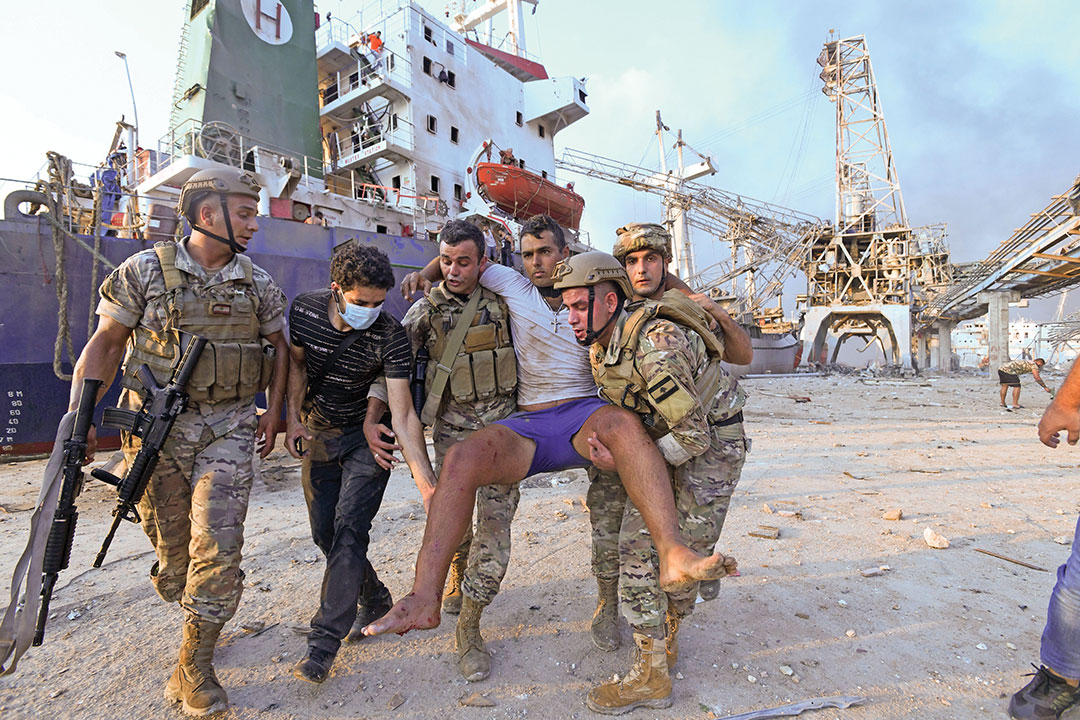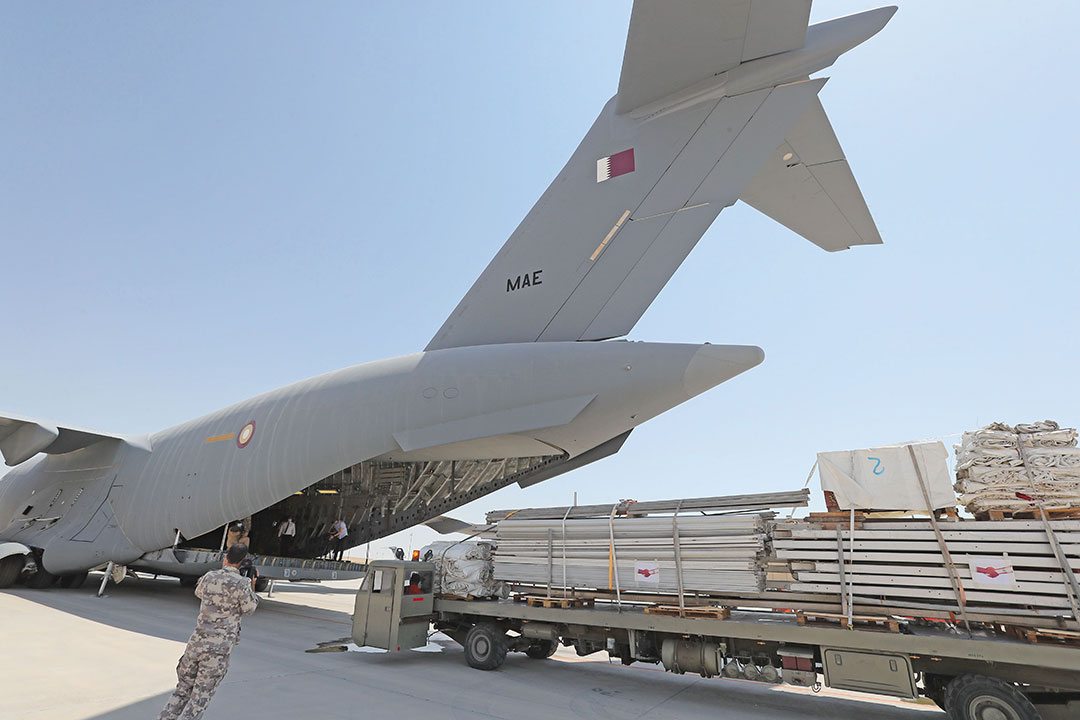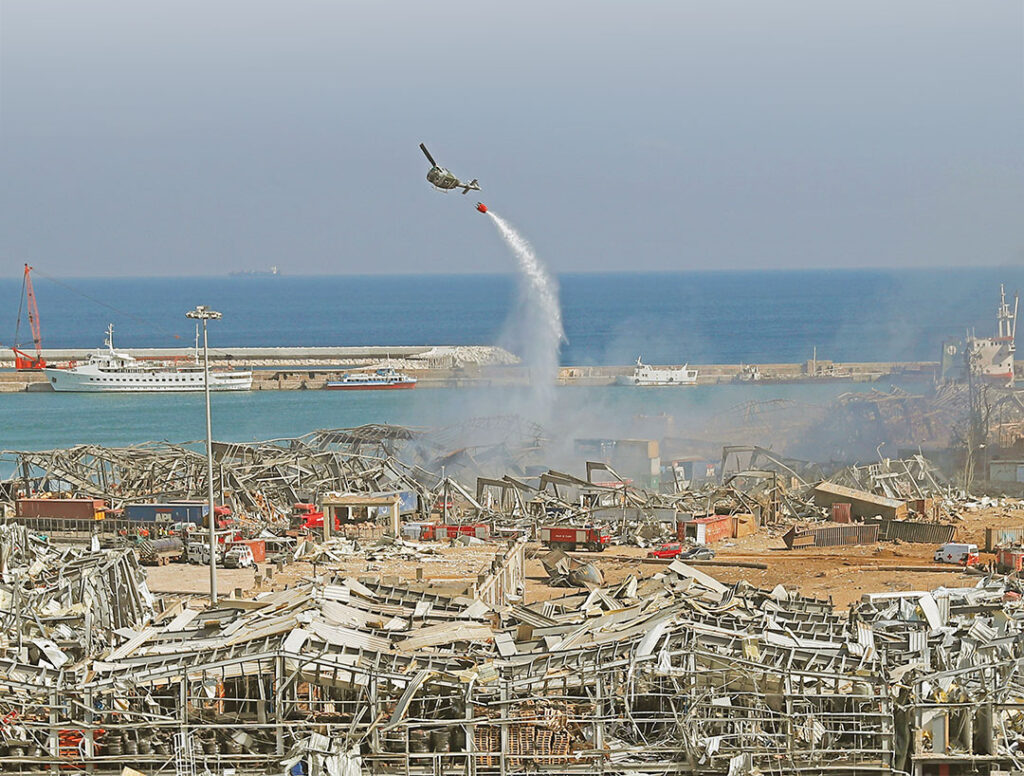UNIPATH STAFF
At 6:07 p.m. on August 4, 2020, a giant mushroom cloud formed over the Port of Beirut. The shockwave from the blast — caused by an explosion of 2,750 tons of stored ammonium nitrate — obliterated whole neighborhoods of the Lebanese capital.
The disaster left more than 40,000 homes, apartments, shops and offices uninhabitable. In addition to the 218 dead attributed to the explosion, 6,500 Beirut residents were injured and another 300,000 displaced from homes and businesses.
Four hospitals, serving hundreds of thousands of people, were knocked out of commission. The main building of the Lebanese Ministry of Public Health was destroyed along with the other medical centers.
It was one of the largest non-nuclear explosions in history and came at a terrible time for Lebanon, which had been enduring the COVID-19 pandemic, an economic crisis, public unrest and a Syrian refugee crisis.
The Beirut port explosion served as a case study at the 4th Middle East and Gulf Cooperation Council Regional Counter Weapons of Mass Destruction Symposium in July 2022. On the one hand, it illustrated resilience, generosity and heroism in the face of unanticipated disaster.

On the other hand, Lebanese officials have blamed the catastrophe on administrative and regulatory incompetence, corruption, and ignorance. Officials still have no clear idea how such large quantities of ammonium nitrate even reached the port.
Though Lebanon has deemed the blast accidental, an attack by weapons of mass destruction would likely have evoked a similar initial response from civilian and military authorities. In fact, in the first hours after the explosion, Lebanese physicists surveyed the site for any traces of radioactive fallout.
That the readings turned out to be normal didn’t still the fears of many Beirut residents who feared that they had been victims of a deliberate attack. The mushroom cloud footage would continue to feed the rumor mill.
Enter the military
As the most trusted institution in Lebanon, the Lebanese Armed Forces (LAF) played an outsized role in the disaster response. Just 20 minutes after the explosion, the chief of the armed forces had formed a joint crisis management committee to coordinate the military and civilian response.
Within hours, 1,500 Soldiers were on the ground, cordoning off the wreckage, evacuating civilians and setting up medical stations for the injured. The mission quickly grew to encompass surveying damage, distributing humanitarian aid and clearing rubble from the port.
An LAF chemical, biological, radiological and nuclear (CBRN) company established in 2009 as part of an army engineering regiment focused on containing any contaminants loosed by the port destruction. They mapped and inventoried hazardous materials such as fireworks, toxic gases, flammable liquids and pesticides.
More than 6,000 liters of corrosive acid had breached its tanks, and Soldiers and civilians staunched and neutralized the spill.
A month after the initial disaster, a tire fire at a port warehouse threatened to ignite thousands of liters of heavy oil stored nearby. It took the combined efforts of Soldiers, firefighters and the Lebanese Air Force to suppress the blaze.

Partners helping partners
Lebanon’s response came with a healthy helping of regional and international assistance. The U.S. Defense Threat Reduction Agency was instrumental in setting up the LAF CBRN company that did such stellar work after the explosion.
Physicists investigating the possibility of nuclear contamination in Beirut requested assistance from the Incident Emergency Centre at the Vienna-based International Atomic Energy Agency. The agency helped reassure Lebanon that nuclear weapons played no role in the disaster.
Volunteers from 12 international search and rescue teams fanned out over the port and surrounding neighborhoods to free survivors from the rubble.
Within a week of the explosion, 162 planes arrived in Lebanon carrying humanitarian aid from 40 countries. Six cargo ships unloaded donations from wharves undamaged by the disaster. Lebanon’s Ministry of Public Health covered medical expenses for more than 7,000 Beirut residents.
Lessons learned
Lebanese officials — both military and civilian — viewed the explosion as a regulatory failure compounded by corruption and incompetence. In discussing the catastrophe at the Regional Counter Weapons of Mass Destruction Symposium, one Lebanese official called for a new culture of regulatory responsibility within the country’s agencies and ministries.
“No agency wanted to be responsible if things went wrong,” he said.
Such a new outlook would include stricter regulation of dangerous substances at the port, improved coordination among port agencies and a greater focus on hazardous materials training for Soldiers and first responders.
Iraqi officials have reached out to their counterparts in Lebanon for advice on inventorying hazardous material at Iraq’s main port of Basra.
The Iraqis suggested creating an “environmental map” so that civil defense officials know what dangerous substances are stored and where. The goal is to avoid a Beirut-style disaster from engulfing Basra.
But after suffering $5 billion worth of damage in August 2020 — damage on a scale to raise fears about similar threats in the future — Lebanon is directing its deepest analysis at itself.

